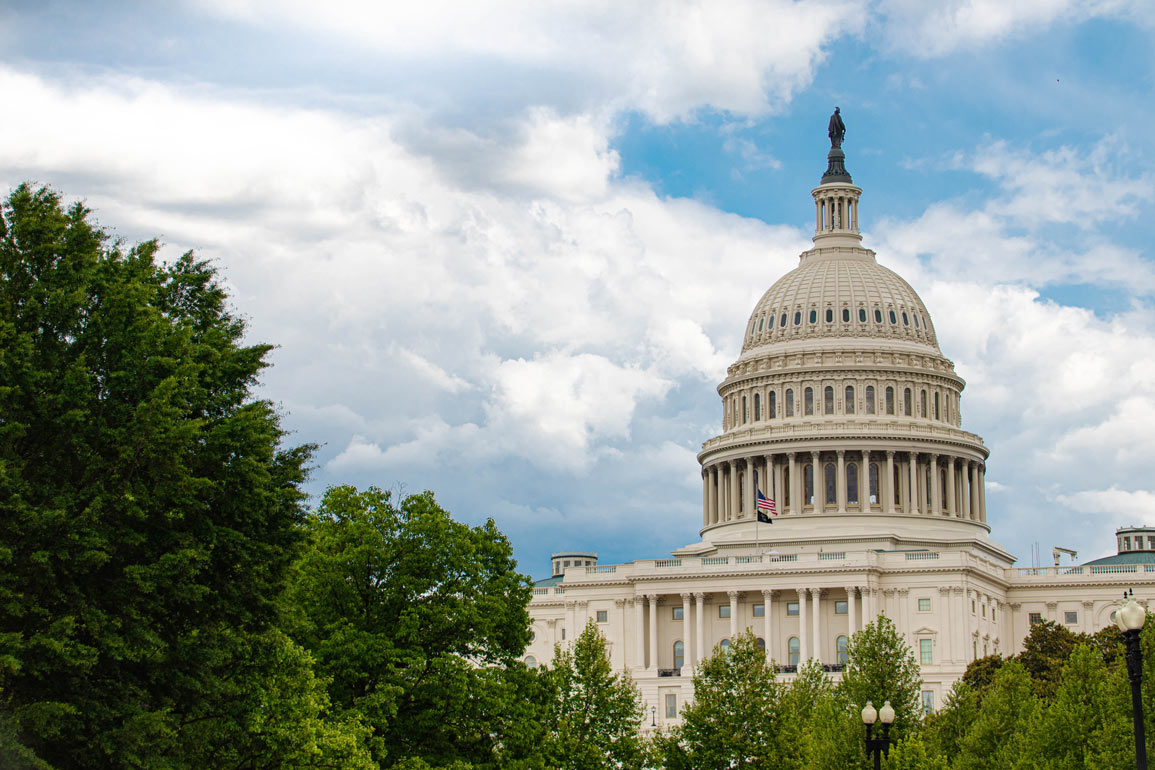The 2024 US presidential election - Donald Trump returns to the White House
The dust has (almost) settled on the 2024 US presidential election. We take a look at how the markets responded and explore potential implications of the incoming administration’s policies.

The dust has (almost) settled, and the results are in on the 2024 US presidential election, which took place on Tuesday, November 5, 2024. While who assumes the office may have little long-term impact on how markets perform (see our pre-election piece, the status of the United States as the world’s largest economy invites interest from non-US observers, given its reach and influence.
In this post-election piece, we recap the election results, review how markets responded to the news, and explore what implications the incoming administration and their proposed policies may have on the economy, and ultimately, the financial markets.
Election results
The Republican nominee, former president Donald Trump, won the majority in the Electoral College and will become president again in January 2025. When it comes to the US Congress (the government’s legislative branch), the Republican Party also took the majority in the Senate. As of writing, the House of Representatives is undecided.
The results of the remaining House races are important, as they will decide how much freedom or resistance Trump will have in terms of his policy platform. If the Republican Party wins the House, then Trump will face fewer barriers to enacting his agenda.

Market reactions
The immediate post-election reaction from US equity markets was positive. The day after the election, the S&P 500 index rose 2.5% (in USD terms). The Russell 2000 index, which is a gauge for US small cap stock performance, soared by almost 6%. Within fixed income, bond yields rose at the prospect of a pro-growth and potentially inflationary agenda, while the US dollar strengthened against major counterparts.
Why was the immediate reaction from equity markets so positive? One reason was the removal of the element of uncertainty. With a tight race to the finish, uncertainty had surrounded the most important questions—who will become the next US president, and when will it be known? In the 2020 election, the result was not declared until four days after election night. With Trump’s victory confirmed before the start of trading on Wednesday, the markets responded positively to the news that there would not be a delay in knowing the outcome.
A second reason for the positive reaction was the market assessment of what a Republican administration would mean for the economy and the financial markets. The Republican Party is generally viewed as being more friendly to businesses and corporations, with its platform that aims at lower taxes and fewer regulations, which in turn is viewed as positive for equity markets.
Policy proposals and economic impact
Here are some of the main policies proposed by Trump or that could be in play. While the laws (and hence, the fine details) are yet to be written, the potential economic impacts are described below.
Tax cuts and deregulation
Trump’s signature legislation during his first presidency was the Tax Cuts and Jobs Act, which reduced taxes for corporations and individuals. Many of the provisions in the Act expire in 2025, so Trump will be looking to extend the cuts. In addition, he has promised to eliminate taxes on the tips earned by many workers in the restaurant and service industries.
Deregulation and removing red tape will also help stimulate the economy, by encouraging innovation and entrepreneurship. Heavily regulated industries, such as banking, will also benefit.
While keeping taxes low would help taxpayers across the board, the flipside is that it would increase the national debt, which has already grown to over $35 trillion (and counting).
Tariffs
Trump has proposed a tariff on Chinese imports of up to 60%, while all other imports could see a tariff between 10% and 20%. The tariff would add a “tax” that domestic consumers have to pay on top of the original product cost. This would lead to higher inflation and potentially lower consumption, as imports are now more expensive.
The implementation of tariffs could lead to a “trade war”, where the country whose exports to the US have been penalized may enact a similar tariff on US imports coming into their market. A protracted trade war would hinder growth.
Tariffs have a direct impact on Canada. With more than 70% of Canadian exports crossing the border to the US, the Canadian economy could be significantly impacted if tariffs are levied on Canadian products entering the US.
Immigration
Trump has proposed a mass deportation program which could see millions of undocumented residents deported from the country. As these residents vacate their jobs and employers try to fill them, the economy could see a slowdown. The US labour market is currently tight, as evidenced by historically low rates of unemployment, so affected businesses may need to raise wages to attract new workers, or alter their growth plans.
Energy
Trump said that if he becomes president, the plan will be to “Drill, baby, drill.” The US currently produces more crude oil than any other country, so an expansion would increase the gap to the rest of the world. Expanding production however, would put downward pressure on oil prices, making investments in US oil production less attractive.
Trump also plans to repeal some of the clean energy initiatives from President Joe Biden’s Inflation Reduction Act. This will provide an incentive for oil and gas companies to grow and expand.
With respect to Canada, our country currently exports about 97% of its crude oil to the US, with 87% coming from Alberta alone. One concern for Canada’s energy interests is if the US imposes a tariff on Canadian crude oil, though former US Commerce Secretary Wilbur Ross has said that there will likely be an exemption, given how reliant the US economy is on energy products. Adding a tariff to energy imported from Canada would raise prices for US consumers, and possibly discourage further investment in Canadian oil and gas projects versus US alternatives.

Financial markets
While it remains to be seen what, if, when and how Trump’s policies will be enacted, financial markets have so far welcomed his re-election, especially in US equities. As policies take shape, some sectors stand to benefit more, and others less so. The markets will assess the impact of these policies in due course. However, in the longer run, the prospects for various asset classes will continue to be based on the traditional indicators. These include, for example, the state of the economy (including inflation), where interest rates are headed, and if companies are generating earnings?
Summary
With his decisive victory on election night, and the promise of a pro-growth agenda, Trump’s election as the next president of the US has been well-received by equity markets. His policies on taxes and deregulation would likely provide a boost to the economy, but tariffs and a ballooning national debt may prove to be detractors. The bottom line is that while the direction of policy may be less ambiguous, the degree to which trade relationships will be affected via tariffs or other policy measures is unknown, and will not be known until such courses of actions are announced with clarity.
Regardless, the important considerations for both equity and bond markets over the longer term remain on the fundamentals: interest rates, corporate earnings, and valuations. Staying the course on your investments, especially over the long term, will be more important than the policies of an incoming administration.
This report has been prepared by ATB Investment Management Inc. (ATBIM). ATBIM is registered as a Portfolio Manager across various Canadian securities commissions with the Alberta Securities Commission (ASC) being its principal regulator. ATBIM is also registered as an Investment Fund Manager who manages the ATB Funds. ATBIM is a wholly owned subsidiary of ATB Financial and is a licensed user of the registered trademark ATB Wealth.
Past performance is not indicative of future results. Opinions, estimates, and projections contained herein are subject to change without notice, and ATBIM does not undertake to provide updated information should a change occur. The information in this document has been compiled or arrived at from sources believed reliable but no representation or warranty, expressed or implied, is made as to their accuracy or completeness. ATB Financial, ATBIM and ATB Securities Inc. do not accept any liability whatsoever for any losses arising from the use of this report or its contents.
The material in this document is not, and should not be construed as, an offer to sell or a solicitation of an offer to buy any investment. This document may not be reproduced in whole or in part; referred to in any manner whatsoever; nor may the information, opinions, and conclusions contained herein be referred to without the prior written consent of ATBIM.
